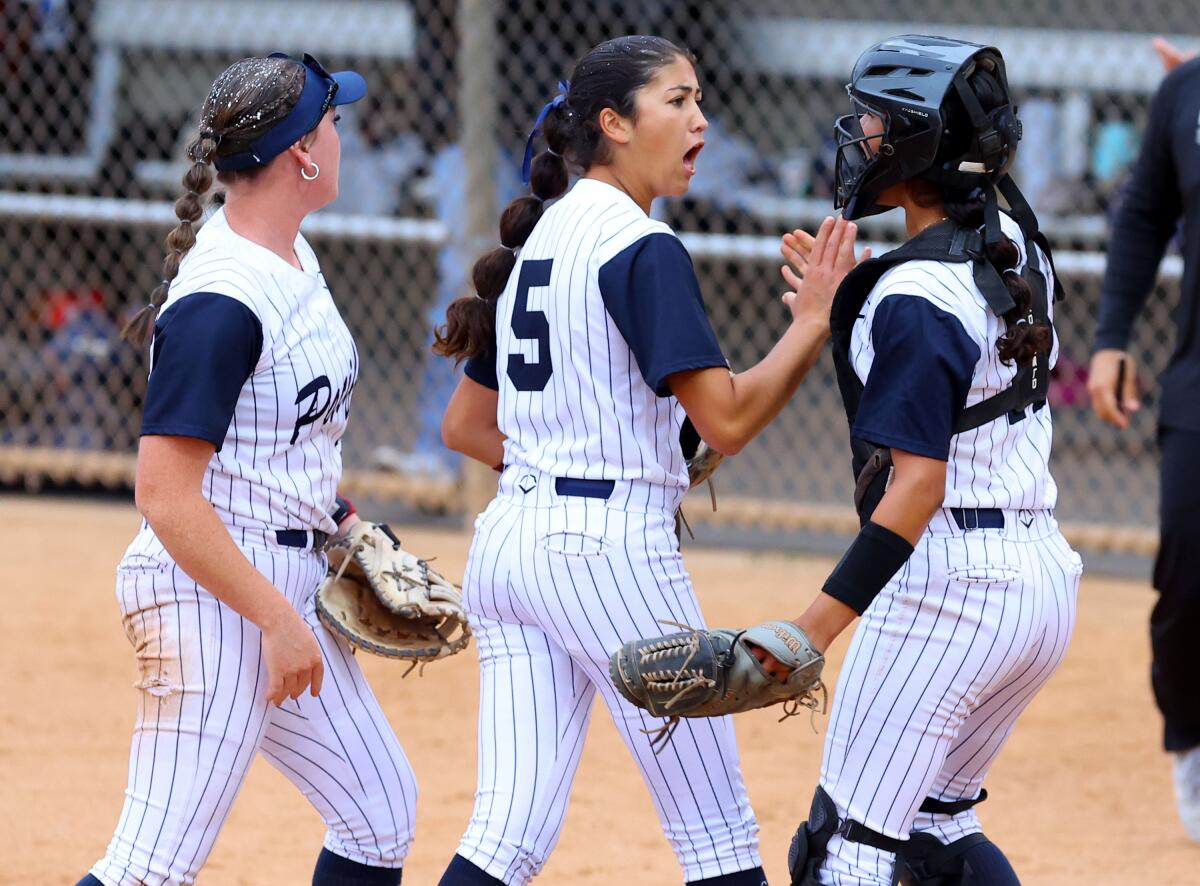Apodaca: Our obsession with youth sports programs should be sidelined

- Share via
Folks, we need to talk about youth sports, because we’ve darn near wrecked them.
It’s hard to pinpoint exactly when or where we started going off the rails. But many of the problems can be linked to a pernicious mix of misguided ambition and the laws of unintended consequences.
The adults involved — parents, coaches, college recruiters, and those operating in what has become a highly lucrative industry — share in the blame for perpetuating a warped system that often results in harm being done in the quest to do good.
That’s why many influential voices are advocating for change. One example is former track coach and elite runner Linda Flanagan and her excellent book, “Take Back the Game: How Money and Mania are Ruining Kids’ Sports — And Why It Matters.”
To be clear, sports are great. Youth sports provide many important benefits, including promoting fitness and qualities of leadership, teamwork and perseverance. Some kids find themselves, or discover some previously under-appreciated aspects of themselves, through participation in sports. Plus, they’re fun.
Indeed, it is a deep love of sports and the belief in their power to enhance young lives that fuels the growing movement to address the toxicity that permeates youth programs.
The fallout from that poisonous culture can be brutal: Eating disorders, impossible body standards, anxiety, injuries, early burnout, even abuse. The maniacal competitiveness. The way that the money poured into youth athletics exacerbates inequality, with winners and losers too often determined by who has the bigger bank account.
Let’s start with the parents. And yes, for the record, I belong in that group.
Most of us tell ourselves that we are not going to be that parent — the kind that paces the sidelines, clutches the chain-link fence, screams, berates referees, harangues coaches and insists on dissecting their kid’s performance after every contest.
While most of us aren’t guilty of such extreme behavior, it’s hard for even the most even-keeled parents to remain unaffected by an environment in which superior athletes are idolized and rewarded. The marketing campaigns and “Just Do It”-type messages are everywhere. How can we avoid getting a little infected by the bug?
So we might push a bit too much. We might be tempted to sign up 3-year-olds for sports academies— is anyone surprised that these are a real thing? — out of fear that the tots won’t develop the skills they’ll need to be competitive 6-year-olds.
By the time they turn 8 we are planning our vacations — pretty much our entire lives — around their sports schedules, and driving long distances to tournaments because we’re convinced that’s what athletes must do. We steer our kids into specializing in one sport, and once on that track there’s no turning back.
Let’s not leave coaches off the hook.
Again, most are well-intentioned, and whether they are parent volunteers, underpaid English teachers, or experienced professionals, they often play positive roles in children’s upbringings. But they, too, feel the pressure — to meet parents’ sometimes ludicrous expectations, to be competitive, to mold kids into winning athletes.
And that pressure inevitably seeps through in their dealings with kids. Some kids get little to no playing time, yet often all are required to engage in elaborate fundraising activities and overly long practices that are prioritized over other commitments, including homework and family time. Excessive scheduling eats up evenings and weekends. Shouting and constant berating become normalized.
All this heightened competitive fervor is fed by a multibillion industry with a vested interest in persuading kids and their parents that they don’t stand a chance unless they invest in pricey equipment, clinics, private coaching, personal trainers, nutrition consultants, summer camps and academies.
It’s no wonder some kids walk away. We’ve sucked the joy out of sports. Or they never get started because their families can’t afford all the bells and whistles. The haves are worn out and the have nots are locked out.
It’s impossible to escape the conclusion that these issues are behind the fact that youth sports participation in the U.S. has dwindled over the past 15 years.
So what’s the answer?
A national cultural awakening would help, as would an end to serious competition for very young kids. We also need to rewire our thinking about what it means to be a youth athlete. Girls, in particular, should not feel pressure to emulate an unrealistic, ultra-idealized image of a fit female body. And more funding should go to community-based youth sports programs that welcome all, regardless of ability or income level.
Beyond those measures, a more radical idea has emerged, one that addresses what many see as a root cause of the woes plaguing youth sports.
They think we should get rid of athletic scholarships.
Don’t faint. It’s not as crazy as it might seem.
Collegiate scholarships and big admissions advantages for athletes have fed an incentive structure — nearly impossible to resist — to identify promising young athletes early on, and then push them into accelerated programs with sometimes wildly inflated objectives. Thus, early flame-outs are common.
If we banned such preferential treatment, not only would it help level the college admissions playing field, but it would relieve much of the pressure that we put on kids to pursue overly aggressive athletic trajectories.
It will probably never happen. But think about it anyway. Maybe we could just let kids be kids.
All the latest on Orange County from Orange County.
Get our free TimesOC newsletter.
You may occasionally receive promotional content from the Daily Pilot.






